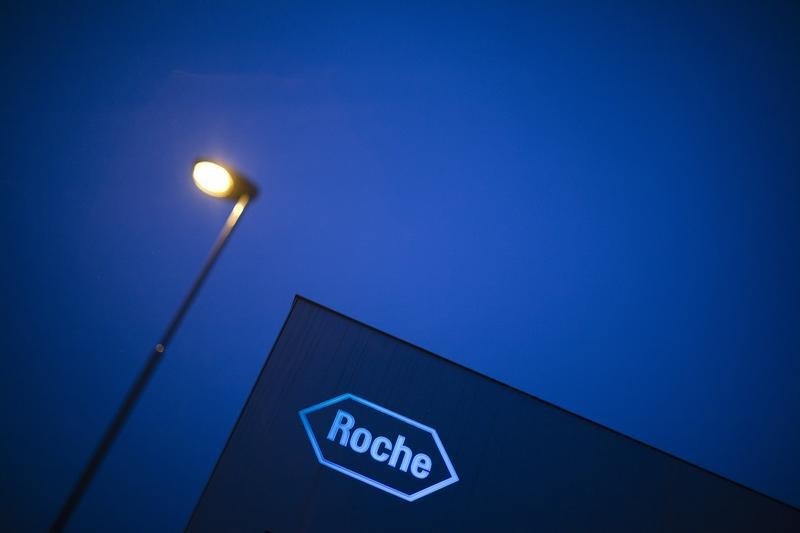Paul Tudor Jones sees potential market rally after late October
Investing.com -- Roche Holding (SIX:ROG) has secured rights to an obesity treatment from Denmark’s Zealand Pharma A/S (CSE:ZELA) in a deal worth up to $5.3 billion, as the Swiss pharmaceutical giant looks to expand its presence in the rapidly growing weight-loss market.
The agreement, announced Wednesday, gives Roche access to petrelintide, a compound currently being tested in overweight or obese individuals without type 2 diabetes.
The acquisition signals Roche’s push to catch up with industry leaders Novo Nordisk (NYSE:NVO) and Eli Lilly (NYSE:LLY) in the weight-loss sector, whose U.S.-listed shares fell more than 6% and 1% in premarket trading Wednesday, respectively.
Zealand’s stock surged 45% before paring gains, last trading around 24% higher in Copenhagen as of 09:08 GMT. Roche shares also rose, up 4%.
As part of the deal, Zealand will receive an upfront payment of $1.65 billion, with potential milestone payments bringing the total to $5.3 billion, largely dependent on late-stage trial results and sales performance.
Petrelintide belongs to a class of long-acting amylin analogues, designed to mimic the hormone amylin, which is released alongside insulin during meals.
Under the agreement, Roche and Zealand will co-market petrelintide in the U.S. and Europe, while Roche will hold exclusive commercialization rights elsewhere.
Profits and losses for petrelintide, as well as a combination treatment with Roche’s CT-388, will be split equally in the U.S. and Europe.
The transaction is expected to close in the second quarter.
Jefferies analysts said the terms of the deal “exceed investor expectations, in our view, noting positive surprise from access to co-profits from combo sales.
“We argue shares could rise significantly, perhaps >30%,” they added.
Separately, Morgan Stanley (NYSE:MS) analysts said that while the acquisition bolsters Roche’s position in the obesity market, the “generous deal terms” are likely to be a point of debate among investors, “particularly given Abbvie’s decision to partner with earlier stage Gubra."
For Novo Nordisk, the analysts see the Roche-Zealand partnership “as a small incremental negative.”
